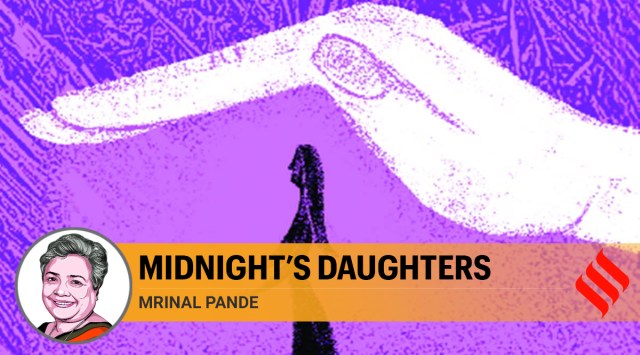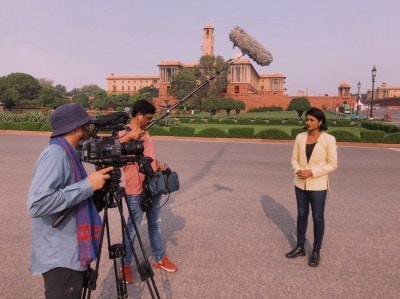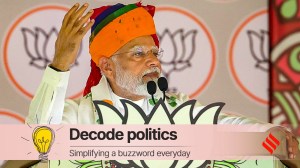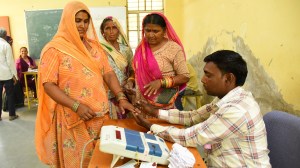- India
- International
Being free requires empowering yourself and helping others step out for change
Each generation of our women will need to tweak old freedoms and laws. But the young women today need to realise that they have inherited a well-documented past.
 All life is born of women and while growing up in families like ours, all girls were almost entirely brought up by their mothers.
All life is born of women and while growing up in families like ours, all girls were almost entirely brought up by their mothers.I was born on the eve of Independence. By the time I started school as a precocious three-year-old, Gandhiji had died and India was framing its Constitution as a secular republic that would not discriminate on grounds of caste, religion or gender. A slow wave of conservatism, however, awaited us. It was hostile to the educated band of articulate women Bapu had brought to the forefront during the freedom movement.
As young daughters, family elders took care to introduce us to sexual hierarchies early on. Only brothers, boys growing to be men, were going to be privy to the levers that moved inter-connections between caste, class and higher learning. By the time we entered senior levels in school, even though my academic successes may have far exceeded that of most males of my age in the family, I realised teenage girls had little to choose from in terms of academic and physical freedoms. Even though at that point I was mostly clueless about what I wanted, I knew that growing up without firm opinions or beliefs about socio-political changes, displaying self-doubt and multiple personas expected of cute, hare-brained females, was a rather revolting idea.
All life is born of women and while growing up in families like ours, all girls were almost entirely brought up by their mothers. Yet, we failed to see how we were first introduced to vital emotions like love, disappointment, power and tenderness by our mothers, and how it marked us for life. By the time I passed out of college and got a job, a quarter of a century after Independence, India had begun to change. But change was still mostly visible in arenas firmly controlled by men. Among the ordinary Indians, most of the manual labour continued to be done by women who seldom controlled their own bodies or family assets. Up until the late 1980s, the presence of female workers in the secure and well-paid formal sector remained slim. Most of those listed as working women in the Census were actually informal workers living in shanty towns and villages. Outside their homes, they raised, processed and helped men market all kinds of produce, but seldom could they access money or seek mobility on their own. This was the world of invisible informal workers that first my mother’s writings, and later Ela Bhatt, involved me with at a deeper and more physical level. Procreative choices for all of us still remained unobtainable, so did equal wages and inclusion in various workers’ unions.
Until the 1975 report on the Status of India’s Women was released, female sources in the academe were rarely cited and there were virtually no primary sources for understanding the real state and status of India’s women. As a young mother living within a family, working and raising daughters, I obsessively read the mainstream recorded history of our women. I found motherhood glorified in speech and rituals, but also used to ghettoise and restrain a vast female potential within homes and at workplaces. I was fortunate to be among a band of six women to work on the first-ever report on women in India’s informal sector. The report, Shramshakti, came out in 1989 and underscored the vast sea of unseen hands that contributed substantially to the GDP but enjoyed no solid protective umbrella, politically or legally.
Our print media scene was changing and allowing women in. I suddenly found an editorial niche to launch a magazine for women in Hindi. With this journal, Vama, I realised I had invaded not only a largely male professional domain, but also broken various social taboos and opened the floodgates to painful and problematic encounters. This was the most vulnerable period in my life. By the time I was editing a semi-political weekly, the political pendulum had swung once again towards coalition politics. I now saw that the qualities India cherished in its politicians were the same it condemned in its women — risk-taking, grim aloofness, capacity to speak in many voices, leading firmly from the front, and discarding old allegiances and traditions of the early years.

The ’90s sum up many of the basic transitions India and its women underwent. Two iconic, though polaric, powerful females — Indira Gandhi and Ela Bhatt, the founder of Self Employed Women’s Association (SEWA), a Gandhian organisation of the poorest daily wage women workers — to me marked the history of the rise, and continuing vulnerabilities, of India’s women. Indira’s face was that of a regal diva, emphatic and mysterious, masking a highly intelligent but restrained femininity. Bhatt, in contrast, was and remains without any quirks, the Any Woman, struggling for what was then a minority, but is today recognised as an important and independent subgroup.
Are they role models for us then? I am not sure. In the manner of real creators of change, their work is their message. They have given no aspirational advice or directions unlike today’s male leaders so prone to pontificating about “sashakteekarn” of mothers and daughters. What these two did was to offer Indian women from all walks of life, including me, a thousand possibilities for thinking and doing things differently. At the end of the day, they remain largely self-made and free of obligations to patriarchy.
Of course, today’s freedoms too will calcify over years. At one point, when the Mathura case happened and rape laws were amended, we were vastly relieved. But a few decades later, the December 16 rape and murder case came up, necessitating another look at our jurisprudence. So, yes, each generation of our women will need to tweak old freedoms and laws. But the young women today need to realise that they have inherited a well-documented past. If they can now put out a dazzling array of intellectual and political work, it was made possible by generations of women who started practically with nothing. Most of my own early rigidity and the anger with which I considered my situation and gender as a Hindi hybrid, mother of daughters who I chose to give every freedom denied to me, has evaporated. I realise that revolutions are not made by laws. Being free requires empowering yourself and helping others step out for a change.
Pande is a senior journalist and author
EXPRESS OPINION
Must Read
More Explained
Apr 23: Latest News
- 01
- 02
- 03
- 04
- 05









































